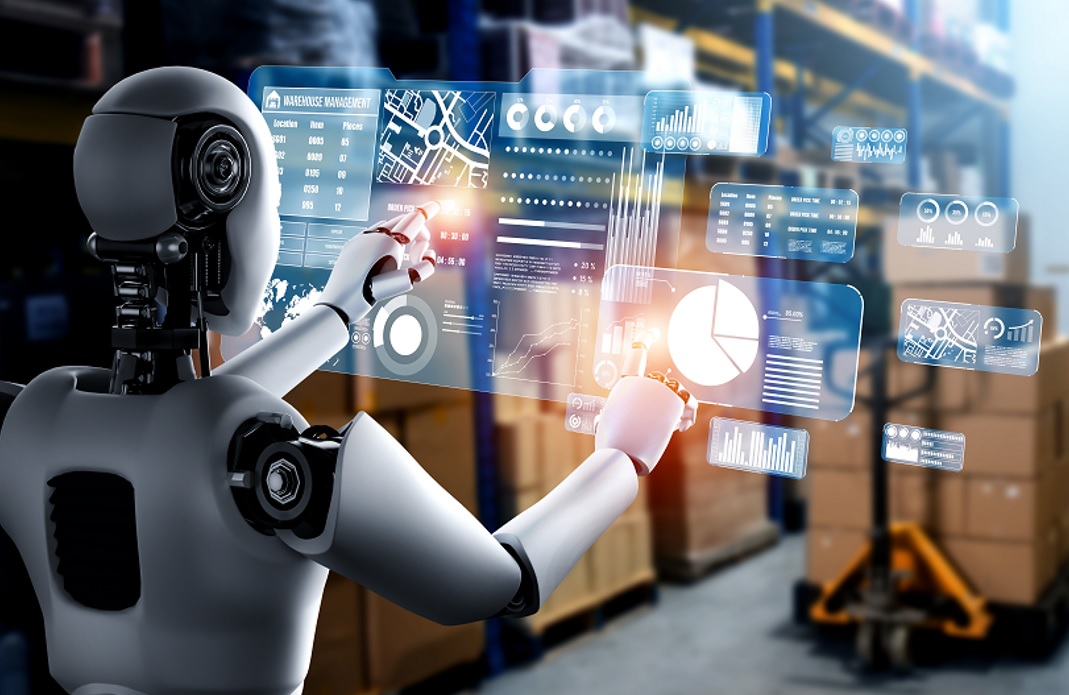
AI has become the latest buzzword – even to the extent that I am imagining – but not believing – that this will be the last blog written by a human.
ALOM’s CTO and COO, Brandon Marugg, was recently featured on a podcast about the future of AI in supply chains. Here he put to rest that AI is about editing stuff in ChatGPT. Yes, ChatGPT can help write boring office memos, but given the technology deficit in supply chain, we need more.
The future that Brandon described included seamless systems integration. Maybe I have been in supply chain for too long, but this gives me goosebumps. Think about having internal systems communicate and resolve issues themselves. But even more, think about external collaboration and the opportunities that seamless integration opens up.
Supply chains are known to encompass a plethora of information. Some of the information is very structured. That is the information we have in our systems now – from part numbers to on-hand quantities. Other information is very unstructured. The unstructured information is what gives us trouble and what caused the supply chain crisis during the pandemic. Disruptions are hitting us from all sides these days: War in Israel, war in Ukraine, too low water levels in the Panama Canal, trade war between the US and China, and on it goes. Early demand signals can also often be unstructured. The main promise of AI, seen from my chair, is to help us make sense of unstructured data. Better forecast and probabilistic forecasting based on early demand signals; better ability to react to geopolitical disruptions to the supply chain, stronger compliance management and instant updates and remodeling to our supply chains.
The unstructured information is also very dynamic. Regrettably, our systems are not set up to deal with dynamic and changing information. The presumption of systems is that information is stationary. Nobody knows the fallacy of this presumption better than supply chain professionals. AI deals well with dynamic information. As chokepoints are resolved in the supply chain, specifications or regulations change, seamless updates are done, mostly without human intervention. Today, this is where supply chain professionals spend most of their valuable time.
The other expected improvement is the ability to handle big amounts of information. As computing power grows and more information can get processed, we improve our ability to deal with the complexity of supply chains. Today, this is typically done in a siloed approach with one group doing demand planning, another in charge of compliance management, another doing risk analysis, another doing E in ESG, yet another doing S in ESG and so forth. Regulations and legislation are coming fast and furiously in all parts of the world. Privacy laws are just a little bit different in the US states that each have their own rules. They, again, vary from GDPR or other international legislation. ESG regulation in Germany varies from California and from many other states with different reporting requirements. Even RoHS regulations vary. Honestly, nobody can keep track. But I dream about AI being able to track it for us and incorporate it into our supply chain.
Today, there is still a way to go. Supply chain professionals cannot deal with the errors and lack of integration that mar current AI options. Especially in manufacturing and in quality management, we need much more accuracy.
Brandon said on the podcast that the impact of new technology is often overstated for the short term and underestimated for the long term. I have stopped speculating on when technology will turn from pioneering, to nice to have, to critical. But I know that we all need to think about whether technology will impact our industry, even if it just seems like a buzzword at this time. Yet I am excited about AI’s potential for solving some of the world’s biggest supply chain issues.
Brandon’s podcast is here.